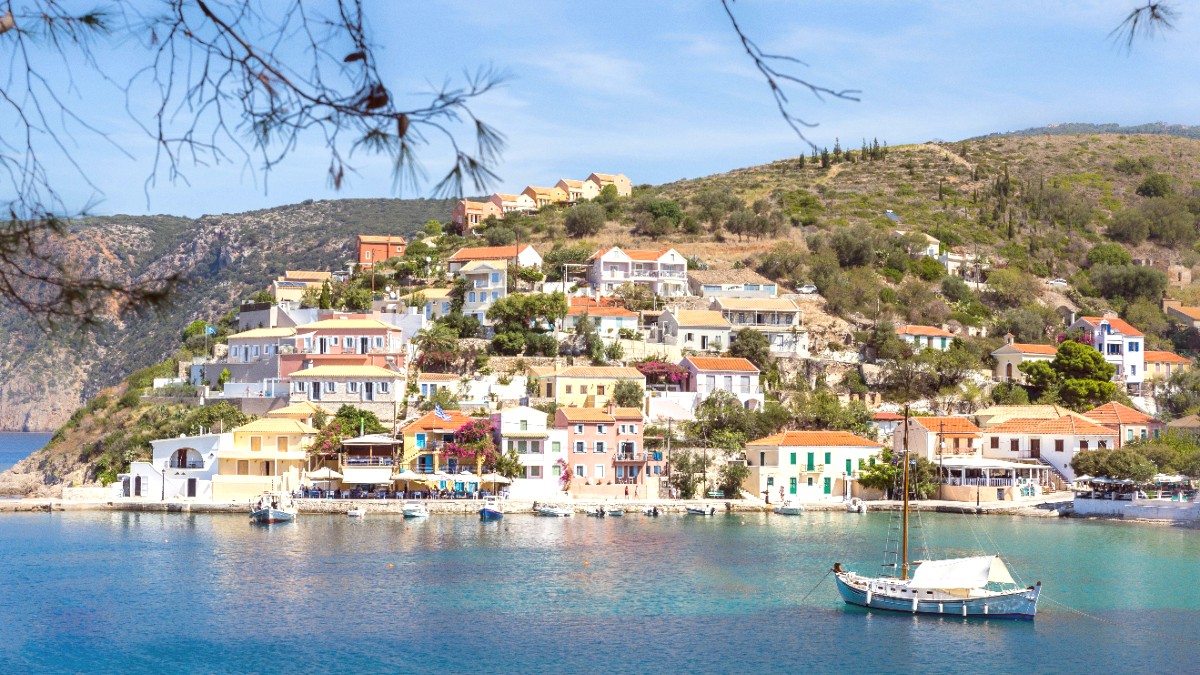
Greece
A protected area for its unique black fir forest and biodiversity; stay on marked trails and avoid litter.
A recognized wetland ecosystem and habitat for various bird species and marine life, including the loggerhead sea turtle.
During nesting season (May-Oct), respect marked areas, avoid disturbing nests, and do not use bright lights on beaches at night.
Your actions as a traveler make a tangible difference.
Recycling bins (for plastic, paper, glass, and metal) are increasingly common in Argostoli and larger towns. Look for designated bins and separate your waste.
Islands like Kefalonia often face water scarcity, especially during the dry summer months when tourism demand reaches its peak.
Consider offsetting the carbon footprint of your flights and other transportation choices.
Seek accommodations and tour operators that actively promote sustainable practices during your visit.
Opt for outdoor gear from brands committed to environmental and social responsibility. These companies often utilize sustainable materials and ethical manufacturing practices.
Explore PatagoniaMinimize waste by choosing reusable products for your travels. This reduces single-use plastic consumption and your overall environmental footprint.
Shop Package FreeProtect Kefalonia’s environment and heritage through conscious choices and respectful interactions.
Connect with Kefalonia's culture with appreciation and respect.
Making an effort to use a few Greek phrases ("Yiasas," "Efharisto") is always appreciated. The pace of life in Greece can be more relaxed.
Always ask for permission before taking photos of individuals, especially children. Some people may prefer not to be photographed.
When visiting churches or monasteries, dress respectfully. This typically calls for covering your shoulders and knees.
Discover the island's unique identity through its people, traditions, and historical sites, fostering a bond with Kefalonia.
Gain insight into traditional island life and aesthetics.
Explore a village largely untouched by the earthquake, preserving Venetian-era designs.
Walk through history at the former capital, with commanding views.
Your actions contribute to cultural interactions; a thoughtful approach enriches your experience and honors local traditions.
Your travel choices contribute directly to local communities.
Directly support small, family-run businesses. Choose local tavernas over international chains, stay in guesthouses run by locals, and buy souvenirs from independent shops.
When shopping for souvenirs or gifts, look for products that bear clear labels as locally made or artisan crafts.
Your choice of local services directly fuels the island's economy.
Be aware of animal welfare issues. Avoid activities that lead to the mistreatment of animals, like riding donkeys that appear overworked or in poor condition.
If moved to donate to a cause in Kefalonia, research reputable local charities, environmental groups, or social welfare organizations.
Always be mindful of your impact and avoid activities that might cause harm to people, animals, or the environment.
Choose ways to engage that actively contribute to the well-being of the local community and its surroundings.